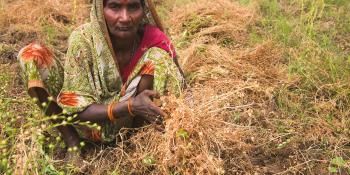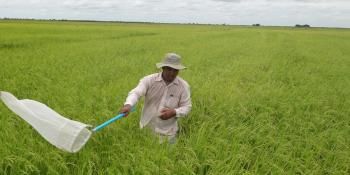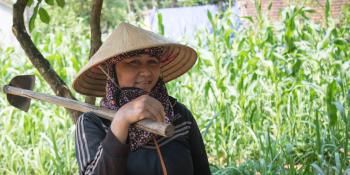Sustainable trade-offs: testing Southeast Asian policies in the face of an uncertain future
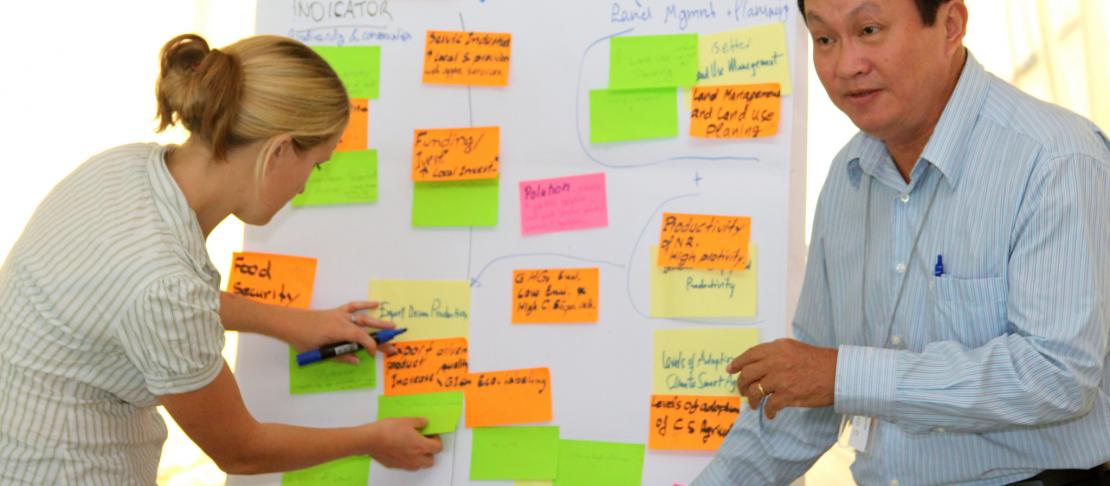
Under uncertain futures, decision-makers and researchers from across the Mekong region in Southeast Asia are reviewing their agriculture and climate policies.
As one of the world’s most productive agricultural regions, Southeast Asia is facing a number of challenges. Climate change and variability are among the greatest unknowns, and are likely to have far-reaching effects on food security, environments and livelihoods, especially when they interact with uncertainty around key socio-economic development drivers.
In the face of these uncertain futures, decision-makers and researchers from across the Mekong region in Southeast Asia met last year to ask hard questions about the feasibility of their policies and their implementations.
Planning under uncertainty
The CGIAR Research Program on Climate Change, Agriculture and Food Security (CCAFS) Future Scenarios Team joined forces with UNEP World Conservation Monitoring Centre (UNEP-WCMC) for a second time to help governments and their partners in Cambodia, Vietnam and Laos plan under uncertainty.
Key policy makers and stakeholders from different sectors met to critically evaluate and strengthen national agricultural, environmental and climate adaptation policies from a regional perspective.
The workshop is part of a project that aims to develop knowledge and tools to address the growing demand for food and other commodities and balance this with environmental conservation.
“The projects also seeks to support decision making in relation to the current and likely future developments of commodities in the Mekong region,” explains Dr. Marieke Sassen, senior programme officer at UNEP-WCMC.
Watch video from the workshop:
Developing future scenarios for Southeast Asia
The CCAFS Future Scenarios team have worked closely with UNEP-WCMC to develop socio-economic, climate scenarios for Southeast Asia, during a first workshop with regional participants in Vietnam in 2013.
The stakeholders’ regional scenarios were subsequently developed into quantitative scenarios through two agricultural economic models, GLOBIOM developed by International Institute for Applied Systems Analysis (IIASA) and the IMPACT model by International Food Policy Research Institute (IFPRI), to explore what the scenarios would do to regional agriculture and food security in the context of global markets, climate change and other drivers.
The quantified scenarios were further developed by UNEP-WCMC and the University of Kassel to create maps for land use, biodiversity and ecosystem services through the LANDSHIFT model up to 2050.
“One of the goals of the workshop was to review the previous developed scenarios as well as the results of the analysis of impacts on biodiversity and ecosystem services that UNEP-WCMC conducted after the scenarios were developed,” says Sassen.
Other objectives were to evaluate the robustness of existing policies and plans that address development, food security and the environment across these different scenarios; and to assess the currently existing capacity and the capacity needs to implement these policies. “The final aim of the workshop was to develop recommendations so that existing policies better address trade-offs and also identify future priorities for environmental management and agricultural development under a changing climate for the Mekong region,” said Sassen after the workshop.
“We have been using the CCAFS scenarios in Cambodia and in Vietnam, mainly to guide policy makers in terms of how to design a plan related to climate change and agriculture,” explains Dr. Rathana Peou, Southeast Asia scenarios coordinator for CCAFS.
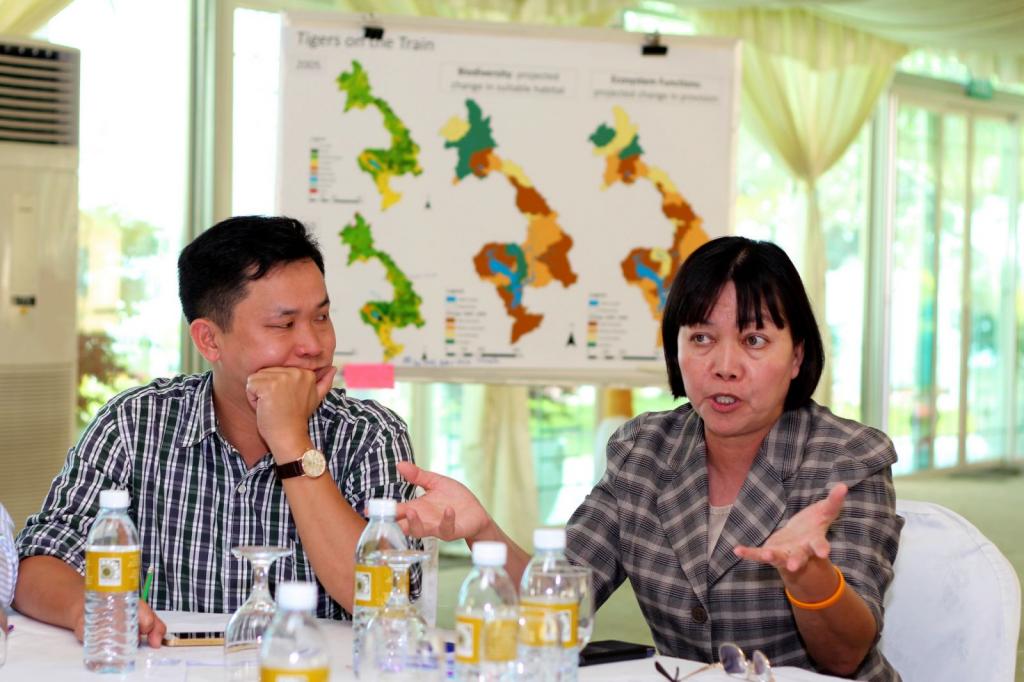
Workshop participants reviewing future climate- and socio-economic scenarios for Southeast Asia. Photo credit: E. van de Grift
The Climate Change Priorities Action Plans developed by Cambodia for 2014-2018 is an example of this. Prof. Dr. Ty Sokhun, Secretary of State for the Ministry of Agriculture, Forestry and Fisheries of Cambodia sees scenario development as ‘a useful tool to bring uncertainty to a safe operating space for agriculture, particularly in the context of climate change’.
“We have been working with the governments of Cambodia, Laos and Vietnam on key policies that have been identified as the best ones when we think of agriculture, climate change and food security,"Peou continues.
"The idea is how can we provide a big picture, a comprehensive picture? [Part of the answer is:] by bringing all of the different skills of the institutions together and being able to initiate or open a dialogue with the policymakers.”
The scenarios helped broaden the outlook of participant Praivan Limpanboon, Participatory Planning and Institutional Specialist at the Mekong River Commission Secretariat: “These scenarios make us look at other aspects and other elements that will form the policy and make the policy more realistic and more inclusive.”
The Mekong river Commission has been using scenarios before according to Limpanboon, “but not very broad and inclusive, like these social-economic and land use patterns. So if we could take this and incorporate it with the scenarios we developed with the Mekong River Commission, I think we will be able to inform the decision makers of the four lower Mekong basin countries to really revise and look into what to aim for in the future.”
CCAFS and UNEP-WCMC are now working together to help the Southeast Asian governments take their reviewed policies and plans forward, and to help groups like the Mekong River Commission engage in a more multi-dimensional scenarios processes.
Want to learn more? Get in touch with Scenarios Officer Joost Vervoort: joost.vervoort[at]eci.ox.ac.uk
Related Reading:
- Future scenario development now part of Cambodia's Action Plan for Agriculture
- Decision makers debate climate threats in Southeast Asia
Story and video by Elisabeth van de Grift, independent communications consultant for CCAFS Future Scenarios, together with Joost Vervoort, Scenarios Officer, based with Oxford University. The Future Scenarios work is a part of CCAFS Flagship on "Policies and Institutions for Climate-Resilient Food Systems"

